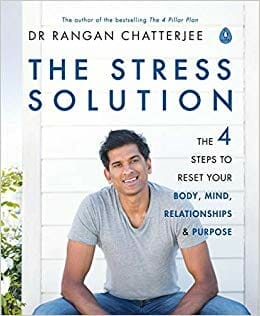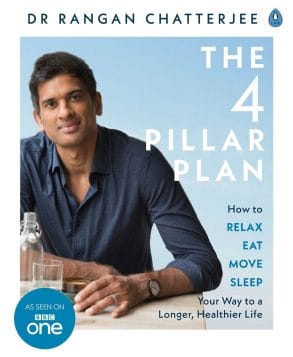We’re in the middle of a sleep deprivation epidemic. There are far too many distractions in our daily lives and we live in a culture where sleep is seen as a luxury rather than a necessity and working with natural rhythms such as the need for rest, relaxation and sleep, can be associated with laziness.
Every time we are sleep deprived, we’re putting our lives at risk. Scientists have demonstrated that relatively moderate levels of fatigue impair performance to an extent equivalent or greater than alcohol intoxication. To put this into context, three hours of sleep leads to worse driver stopping time reactions than when individuals have had a drink.
Scientist claim we are getting between one to two hours less sleep per night than we did sixty years ago, in the context of an eight hour sleep cycle this equates to up to 25% less sleep. And that’s not all, it’s not just the quantity of sleep that is dropping but also the quality of the sleep we are achieving, which ensures that our physical, psychological and energetic functions actively recover to maintain optimal health, energy and resilience on a day-to-day basis.
So why do we want to sleep? Benefits include:
- Increased energy
- Improved concentration
- Greater capacity to learn
- Better ability to make healthy food and life choices
- Reduced risk of developing chronic disease such as Type 2 diabetes and Alzheimer’s disease
- Better memory
- Increased life expectancy
- Reduced risk of being overweight
- Reduced stress levels
In fact, one study has shown that chronic sleep disruption alters gut microbiota, induces system and adipose tissue inflammation and insulin resistance.
But who isn’t guilty cutting corners on their sleep? In the evenings it’s tempting to stay up watching television or surfing the net rather than responding to the body’s signals when you are tired. Maybe you fall asleep on the sofa but then wake some hours later and must get yourself to bed? Not experiencing the uninterrupted sleep if you’d actively responded earlier to the body’s signals to go to bed. Then there’s the stresses of everyday life, including overload of information and technology that keeps us awake at night, causing difficulty falling asleep or the classic, waking too early.
Sleep debt
Unfortunately, we can’t dodge the effects of sleep deprivation by having a bit of a lie-in on a Sunday morning. Studies show that we accrue “sleep debt’ which we can’t just repay with a couple of cheeky extra hours kip here and there. Mild chronic sleep deprivation, the type of which many of us experience these days, found that even after three days of recovery, many debilitating effects remain including:
- Decrease in cognitive ability
- Poor performance at work
- Increased likelihood of being involved in a road traffic accident
- Increased change of psychiatric disorder
- Increased risk of being over weight and developing Type 2 diabetes.
Of course, there are chemical sleep inducers, such as sleeping pills and alcohol. But these do not fix the problem and in fact, create many more health problems of their own.
How much sleep do we need?
As I have written about in the Nutrigold blog “Are You Getting Enough Sleep?” Everyone is different in terms of the sleep quantity they need (on average between six to eight hours sleep a night) but you can gauge your overall sleep quantity and quality by how you feel when you wake up.
If you can say, hand on heart, that within ten minutes of waking you feel ready to take on the day ahead (without the use of a pick-me-up such as caffeine or nicotine) then you have had a good night of quality sleep. However, if your get-up-and-go doesn’t surface for an hour or two (or doesn’t get started during the morning!), then you are not getting the restorative sleep quality that you, your mind and body needs to function at your peak during that day and also to maintain long-term health.
Successful slumber
So how do you get better sleep quality, and maybe quantity, in 2019 to improve your health? By now, I’m sure you’ve read my three other New Year habit blogs in this series:
- How to Hack Your Habits Part 1: Change the Way You Eat
- How to Hack Your Habits Part 2: Surviving the Stress Epidemic
- How to Hack Your Habits Part 3: Get Moving!
By following my “How to Hack Your Habits” programme outlined in Part 1 you will already have in place simple habit changes based around your diet, eating patterns, daily relaxation and movement. All these will help with improving sleep quality and quantity.
Now you can add in some simple habits based around improving sleep quality for great health, energy and resilience. Pick between one to three habits from the list below to focus on for the next month ahead:
1. Create a bedroom for sleep – try to keep your bedroom dark (use blackout blinds or curtains) and free of televisions and e-devices. Darkness triggers the production of melatonin in the brain, which is the hormone that is largely responsible for sending us to sleep. However, we often get too little light in the morning and too much light at night. This throws our body clock out of whack and in turn, all the chemical signals that support the complex symphony of cycles in our body occurring throughout a 24-hour cycle, including sleep, digestion and the immune system responses.
2. Manage technology – the constant overload of information stresses our brains making it hard to switch off for sleep and the blue-light emitted from screens suppresses melatonin production, as it’s the same wavelength as natural sunlight so signals to the brain to wake up:
a. Take regular technology breaks during the day where you don’t interact with your phone or tablet and maybe even actively turn it off such as when you’re eating lunch; a radical suggestion for many people!
b. Limit technology use in the evenings and do not use at least one to two hours before bed. If you do have to use technology in the evenings then make it the exception, not the norm and wear amber glasses to filter the blue light or make sure the night time mode is switched on so the screen has a yellow filter to counteract the blue light. There are many different brands of non-prescription amber glasses easily obtained via retailers such as Amazon.
3. Embrace morning light – spend at least 20 minutes outside (without sunglasses) every morning. Light is quantified in lux units. If we spend our time mostly inside (and let’s face it, in winter that’s a distinct possibility especially if we’re going to and returning from work in the dark) then we only ever hit around 500 lux from indoor lighting. However, the sun gives us about 30,000 lux and even on a cloudy day we can get 10,000 lux exposure from being outside. Getting the right kind of light at the right point in the day can have an amazing effect on regulating the body clock (i.e. the circadian rhythms) and support all the associated cycles surrounding essential body activities such as sleep and our immune system.
4. Create a bedtime routine to unwind – start your evening wind-down with no technology one to two hours before bed and do something relaxing like taking a warm bath or shower, and reading a good book. As you know by now, we are creatures of habit so getting into a consistent pre-bedtime routine will signal to the body that rest and sleep is coming up.
5. Have a consistent sleep and waking time – go to bed at the same time (no later than 10.30pm) and wake the same time at least five times a week. This helps to train a strong sleep pattern and circadian rhythms. Irregular sleep schedules are associated with significant changes in circadian rhythms and poorer performance at work with feelings similar to jet lag.
6. Manage caffeine intake – ensure that any caffeine you choose to consume, including green tea, is enjoyed before 2pm. Caffeine has a long half life, that is it hangs around for up to eight hours in the body before full detoxification by the liver, so can disrupt your sleep. Caffeine also blocks adenosine receptors in the brain, which are normally triggered by natural adenosine build up in the body over the day that helps us to feel sleepy. By blocking these receptors, we break another one of the body’s natural mechanisms to help us fall and stay asleep.
Natural sleep remedies
Alongside the lifestyle changes, there are several herbal and food supplement products designed to support sleep quality and quantity. A frequent flyer favourite in the US is melatonin supplements; these are not legally sold in the UK so will not be discussed in this blog, However, there are other vitamins, minerals and nutrients that can work together synergistically with lifestyle changes to help you achieve that successful slumber. These include:
- 5-HTP
- L-theanine
- Magnesium citrate
- Passionflower extract
- Chamomile extract
- P5P form of Vitamin B6
CBD oil is also associated with relaxation and better quality sleep.
For more information please read the Nutrigold blogs:
- Are You Getting Enough Sleep?
- How to source and dose the best quality CBD oil
- The latest research and health benefits of CBD oil
- Are cannabis derived oils legal?
So what will you change today? Pick one, two or three of the habit changes around sleep and focus solely on these.
I hope that you’ve enjoyed this four-part series of blogs on changing your habits. If you’re interested in finding out more practical information to support yourself in the areas of diet, exercise, sleep, mindfulness, meditation and stress management then I cannot recommend highly enough Dr Rangan Chatterjee’s excellent books “The 4 Pillar Plan” and “The Stress Solution”, which is hot off the press.


Wishing you the best of health,
Elisabeth
References
- Dawson et al (1997) Fatigue, alcohol and performance impairment. Nature
- Poroyo et al (2016) Chronic sleep disruption alters gut microbiota, induces system and adipose tissue inflammation and insulin resistance. Nature Sci Reports 6
- Phillips et al (2017) Irregular sleep/wake patterns are associated with poorer academic performance and delayed circadian and sleep/wake timing. Nature Scientific reports
- Phillips et al (2017) Irregular sleep/wake patterns are associated with poorer academic performance and delayed circadian and sleep/wake timing. Nature Scientific reports
- Zhang et al (2014) A circadian gene expression atlas in mammals: implications for biology and medicine. PNAS 11:16219-24








2 Comments. Leave new
Hello: please let me know how to purchase the supplement 5,HTP, Have heard good reports for this, product, I have purchased from Nutrigold before thanks G!
On
Hi George, You can purchase the product from our website: https://nutrigold.co.uk/5-htp-complex-x-60-capsules.html